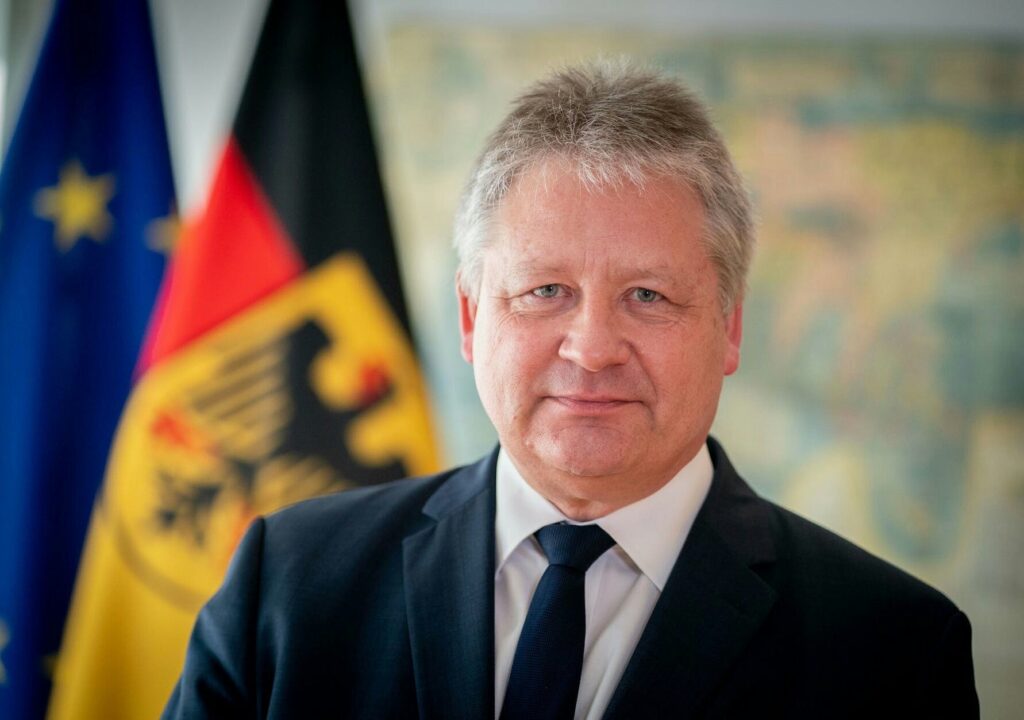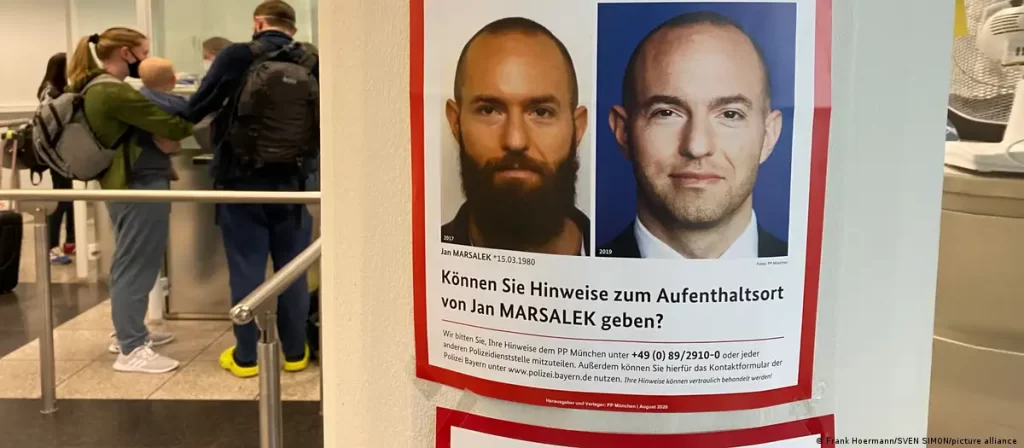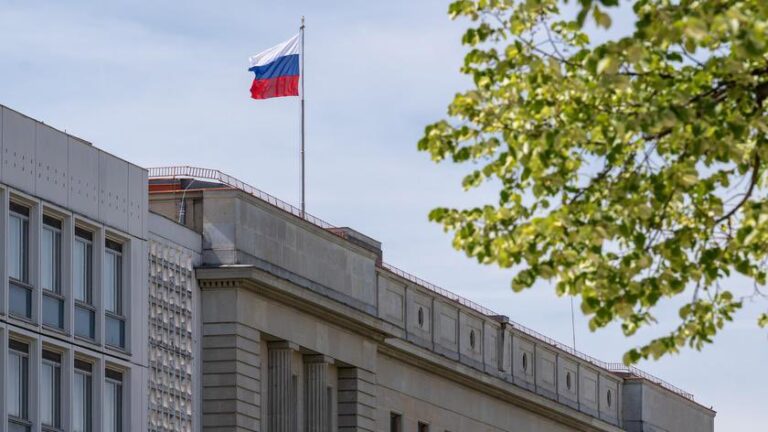Russia has sharply intensified its espionage activity in Germany since 2022. This escalation reflects shifts in Moscow’s intelligence priorities amid the war in Ukraine, worsening relations with the West, and the increasing strategic importance of Germany within the EU and NATO. The Kremlin’s services—particularly the GRU, SVR, and FSB—have retooled their operational methods to adapt to post-2022 European counterintelligence, using cyber-infiltration, illegal agents (“illegals”), and proxy networks. The threat is no longer theoretical: recent arrests, cyberattacks, and political influence operations have underscored the urgency of a unified German and European response.
I. Why Now? Strategic Motives Behind the Surge
- Germany as a Central NATO/EU Node
As Europe’s largest economy and a critical hub of NATO logistics, Germany has become a prime target for espionage. Berlin’s shift toward greater defense spending and arms transfers to Ukraine makes it a valuable intelligence source and a sabotage target. - Collapse of Diplomatic Channels
After the invasion of Ukraine, Germany expelled over 40 Russian diplomats suspected of espionage (2022–2023). Russia responded by embedding intelligence personnel more deeply through non-traditional channels (NGOs, business, academia). - Loss of Open-Source Channels in the West
Sanctions and isolation reduced Moscow’s legal and semi-legal access to Western tech, research, and trade. The gap is now filled with covert activity, especially in the defense-industrial sector and energy transition programs. - Increased German Counterespionage Capacity
Ironically, Germany’s improved counterintelligence has revealed—not necessarily created—more Russian activity. What was once passive surveillance has shifted into arrests and disruption.
II. Indicators of Escalation
- Recent Arrests and Trials (2022–2024):
- January 2024 – Koblenz: A Bundeswehr officer arrested for attempting to pass military intelligence to Russian handlers.
- August 2023 – Bayreuth: Two Russian-German dual nationals arrested for planning sabotage on U.S. military sites in Bavaria.
- 2022 – Berlin: An employee at the Federal Ministry of Economics arrested for spying on energy infrastructure policies.
- Cyber Intrusions:
- APT28 (GRU) and APT29 (SVR) actively target Bundestag servers, arms manufacturers, and even vaccine data.
- Multiple German agencies have flagged hybrid operations involving disinformation, email phishing, and critical infrastructure mapping.
- Espionage via Cultural & Academic Exchange:
- Shell organizations affiliated with the Russkiy Mir Foundation, Orthodox Church networks, and think tanks have continued operations—often under the radar.
- “Illegals” with European cover identities engage with universities, conferences, and social movements.
- Parliamentary & Media Influence:
- Surveillance of AfD members and fringe parties shows Russian intelligence is grooming political figures to amplify Kremlin narratives in the Bundestag.
III. What Has Changed in Russian Tactics?
| Pre-2022 | Post-2022 Shift |
| Use of diplomatic cover | Shift to non-official cover (“NOC”) operatives |
| Focus on industrial espionage | Emphasis on political sabotage & civil unrest |
| Soft propaganda in media | Covert influence through fringe political actors |
| Cyber reconnaissance | Aggressive cyber sabotage and disinformation |
| Long-term asset cultivation | More opportunistic recruitment of Germans |
New Tactics Include:
- Recruiting Russian-speaking Germans via social media or diaspora groups.
- Embedding agents in logistics companies tied to NATO supply chains.
- Sabotage reconnaissance near U.S. bases (e.g., Grafenwöhr).
- Weaponizing legal avenues: lawsuits, asylum exploitation, and foreign marriages.
IV. Threat Assessment
- Military Readiness Risks
Espionage within the Bundeswehr or NATO facilities undermines troop safety and operational secrecy. Sabotage planning near U.S. troop sites raises red flags about sleeper agent capabilities. - Cyber-Sabotage of Critical Infrastructure
German energy grids, rail systems, and communications are being mapped. Past incidents in Ukraine suggest Russia may eventually apply destructive cyber tactics to Europe. - Domestic Destabilization
Russian intelligence supports protest groups (anti-lockdown, anti-NATO, pro-Russia) to sow division. Disinformation campaigns about Ukrainian refugees or economic hardship are growing. - Corruption and Compromise of Officials
Russia targets mid-level bureaucrats and contractors in the energy, transport, and defense sectors—especially those vulnerable to blackmail or ideology.
V. Infiltration Channels
- Academic Programs: Scholarship programs and academic networks used to spot and assess young talent.
- Dual Nationals: Russian-German citizens are approached via consulates, “diaspora organizations”, or even during visits to Russia.
- Business Fronts: Logistics firms, export intermediaries, and green energy contractors have been used as fronts.
- Legal Systems: Exploiting privacy laws, refugee protections, and legal delay tactics to shield suspects or obstruct investigations.
VI. Outlook: What Germany Must Do
- Strengthen Counterintelligence at Regional Levels: Most successful penetrations occur through decentralized areas (local governments, universities).
- Intensify Vetting and Digital Surveillance: Especially in defense, energy, and high-tech sectors.
- Regulate and Audit Foreign NGO Influence: Especially cultural and academic channels with Kremlin ties.
- Declassify and Publicize Threats: Transparency with the public weakens Russian psychological warfare efforts.
- Coordinate with Allies: German intelligence should work closely with the Netherlands, Poland, Czech Republic, and Baltic states already under heavy Russian pressure.
Russia’s espionage in Germany is not merely a Cold War-style intelligence operation—it is an evolving toolkit of hybrid war. Germany’s centrality in NATO, its military resurgence, and its open society make it a target. The Kremlin has adapted to a more hostile European environment with deniable operatives, cyberattacks, and political proxies.
Timeline: Russian Espionage Activity in Germany (Post-2014)
2014 — Start of hybrid warfare doctrine. German counterintelligence notes increased surveillance on Ukrainian activists and arms exporters in Berlin following Russia’s annexation of Crimea.
2015 — Bundestag hack attributed to APT28 (GRU). Massive data breach targeting internal Bundestag documents, emails, and credentials.
2017 — German BfV reports on Russian disinformation targeting federal elections. Kremlin attempts to influence public opinion via social media and right-wing groups.
2018 — A Georgian exile, Zelimkhan Khangoshvili, assassinated in Berlin by an FSB-linked hitman. Signals Russia’s willingness to use targeted killings on German soil.
2021 — Federal prosecutors indict a German university employee for passing satellite and aerospace research to Russian handlers.
2022 — Germany expels over 40 Russian diplomats suspected of espionage after the invasion of Ukraine. Russian intelligence networks are disrupted, then restructured.
August 2023 — Two men arrested in Bayreuth for spying on U.S. military bases and planning sabotage on behalf of Russian intelligence.
January 2024 — Bundeswehr officer arrested in Koblenz for passing military information to Russia. Indicates GRU interest in German military logistics.
April 2024 — BfV reports unprecedented cyber-intrusions by SVR (APT29) targeting the energy transition sector and critical infrastructure planners.
May 2024 — Bundestag member investigated for accepting undeclared financial benefits from a Russian-linked NGO.
June 2024 — German authorities uncover a GRU-linked front company offering consulting services to mid-size defense firms in Saxony and Bavaria.
July 2024 — Leaked emails show Kremlin-backed actors funding far-right protest groups in Thuringia and Saxony to destabilize federal policy debates.August 2024 — Joint German-Dutch raid shuts down a covert server farm in Lower Saxony used for cyber operations against NATO targets.

More on this story: Kremlin to use Germany for EU breakup

More on this story: German intelligence agencies discussed ongoing espionage and hybrid challenges

More on this story: Moscow plotting to remove German Chancellor




